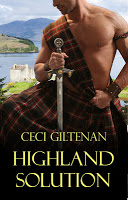In the Highlands or a Lab, a Writer’s Obligations Persist
Posted on February 10, 2014
Filed Under Communication, Technology, The Writing Life | Leave a Comment
Here are two web commentaries on efficient writing, efficient because it admirably accomplishes its purpose, whether that be to entertain or to instruct. Romance novels are one category, and academic or technical writing another. Technical writing is held to a higher standard of reality, since it describes actual (that is, current) places and/or systems. Romance writing leaves everything to the writer’s conjuring, but a good writer won’t abuse that privileged state.
Academic and technical writing, notes the Precise Edit’s Blog, “can be complicated, tedious and confusing. They can be terribly boring.” And there’s no way to waive such abuses of a reader’s time and attention to duty. Density is density, boring is boring. On the other hand, romance writing, in which the author’s imagination controls the narrative, can be turgid, too.
 Ceci Giltenan is the author of “Highland Solution,” a novel of medieval Scotland published last fall. In her professional life, Ms. Giltenan’s expertise is in drug development “and much of it involves reporting results from human clinical studies. In this kind of writing, one starts at the beginning, tells the full story in chronological order and includes every known detail.”
Ceci Giltenan is the author of “Highland Solution,” a novel of medieval Scotland published last fall. In her professional life, Ms. Giltenan’s expertise is in drug development “and much of it involves reporting results from human clinical studies. In this kind of writing, one starts at the beginning, tells the full story in chronological order and includes every known detail.”
Writing a romance novel, however, is more like creating and solving, or leading the reader to solve, an imagined puzzle. “I provided the pieces and left the reader to put them together.” Leaving it to the reader to put a piece of technical writing together, though, could lead to real-time peril. The two are not equivalent kinds of writing.
Yet both romance and technical writing need to engage their readers, either by stirring their imaginations or leading them efficiently through a process. And authors can write badly in both disciplines. Considerations of innate talent aside, why might they do that? Possibly technical writers might think their writing “is supposed to be dull and confusing, or perhaps they think it sounds more professional,” suggests the Precise Edit’s writer. Or “maybe they have read a lot of poor writing, so when they review their writing, it sounds ‘right.'” Oh dear.
In the case of a romance writer under full steam, a tale has to hang well together. “I still create an extensive dossier capturing details on each character’s life and use it to help determine what they might do in any situation,” notes Ms.Giltenan.
“However,” she adds, “unlike a clinical study report, the most compelling story is not necessarily told chronologically and I am not required to spoon feed the reader every detail. Deciding what parts of the puzzle to reveal has become almost as much fun as being all-knowing.”
“Fun” isn’t the technical writer’s preserve. But being as meticulous as knowing what life in medieval Scotland was like is obligatory there, too. Effective writers can’t escape their obligations in whichever realm – real world or fanciful – they may be active. – Doug Bedell
Comments
Leave a Comment
If you would like to make a comment, please fill out the form below.
Recently
- Presentations With Forethought
- Technical Writing’s Lineage – Surely It’s Deeper than Digital
- At the Holidays, Twitting Amazon
- Successful Cookie Baking – From Mom, an Acknowledged Expert
- Slides for a Tech Writer’s Craft
- Digital or Not, Be Clear
- Being Watchful About Digital Designs…
- When Proposals Don’t Click, Keep Making Them Anyway
- Like a Good Gardener, Help an Enterprise Keep Itself Current
- We’re Leaders All, And Need to Think That Way
Categories
Archives
- January 2017
- December 2016
- November 2016
- October 2016
- September 2016
- August 2016
- July 2016
- June 2016
- May 2016
- April 2016
- March 2016
- February 2016
- January 2016
- December 2015
- November 2015
- October 2015
- September 2015
- August 2015
- July 2015
- June 2015
- May 2015
- April 2015
- March 2015
- February 2015
- January 2015
- December 2014
- November 2014
- October 2014
- March 2014
- February 2014
- January 2014
- December 2013
- November 2013
- October 2013
- September 2013
- August 2013
- July 2013
- June 2013
- May 2013
- April 2013
- March 2013
- February 2013
- January 2013
- December 2012
- November 2012
- October 2012
- September 2012
- August 2012
- July 2012
- June 2012
- May 2012
- April 2012
- March 2012
- February 2012
- January 2012
- December 2011
- November 2011
- October 2011
- September 2011
- August 2011
- July 2011
- June 2011
- May 2011
- April 2011
- March 2011
- February 2011
- January 2011
- December 2010
- November 2010
- October 2010
- September 2010
- August 2010
- July 2010
- June 2010
- May 2010
- April 2010
- March 2010
- February 2010
- January 2010
Blogroll